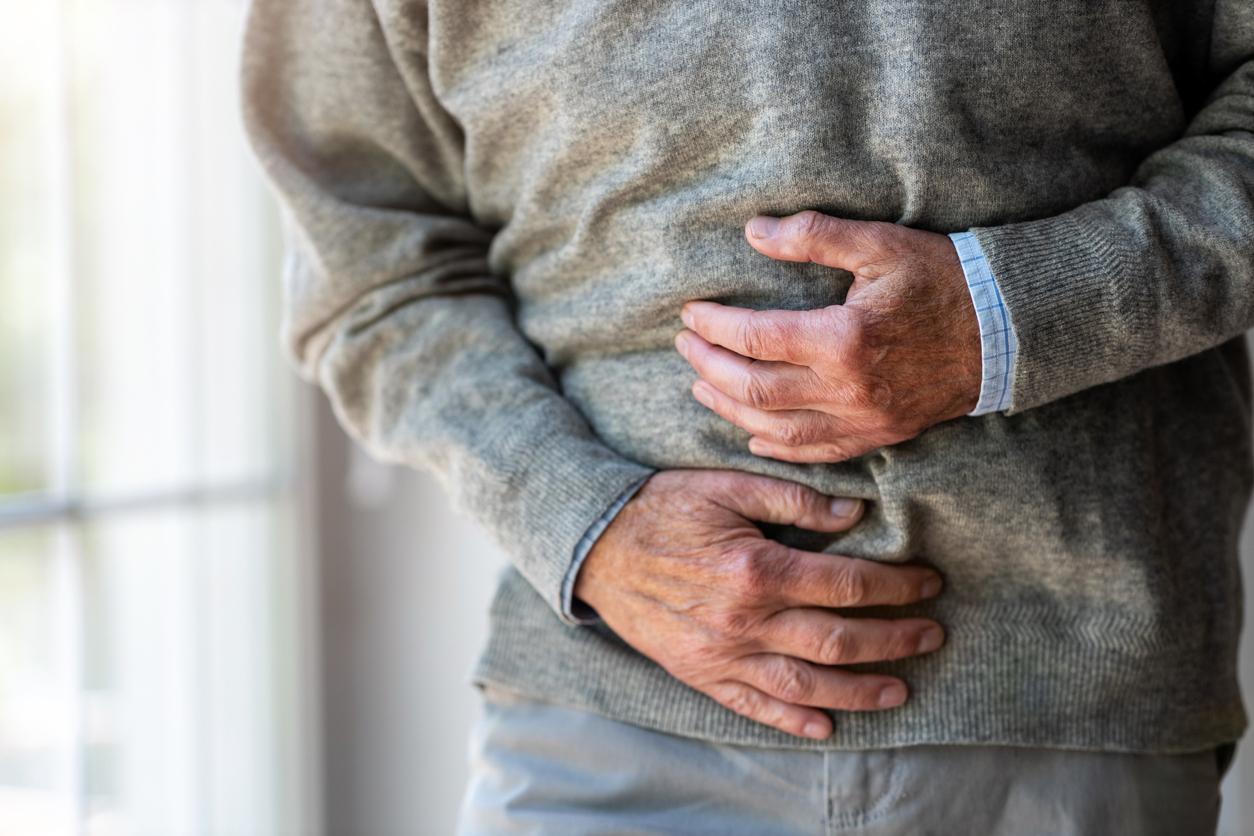Heartburn, Crohn’s disease, ulcerative colitis… Seniors suffering from these pathologies have higher rates of loneliness and depression.

- Older people with digestive disease are more likely than those without the condition to feel lonely and have moderate to severe depression.
- These conditions are associated with poor health or fair health.
- Gastroenterologists should be able to screen their patients for symptoms of depression and loneliness and establish care pathways for mental health treatment.
In the United States, adults are living longer and longer, which is good for life expectancy, but not so good for digestive health. And for good reason, nearly 40% of elderly people report living with a digestive disease. “Many people do not realize that these conditions are very common in outpatient care. (…) Not only are these diseases debilitating for the millions of people who suffer from them, but their treatment is also very expensive,” said gastroenterologist Shirley Ann Cohen-Mekelburg, who specializes in digestive diseases, in a statement.
“Loneliness refers to the subjective feeling of distress from being alone or lacking companionship”
In recent years, health professionals have become more interested in why so many Americans develop these conditions. However, current approaches to their management do not take psychosocial factors into account. In a recent study, Shirley Ann Cohen-Mekelburg and her team of researchers from the University of Michigan (United States) wanted to compare the frequency of loneliness, depression and social isolation among elderly people with or not of a digestive disease and to quantify their association with poor health.
For the purposes of the work, published in the journal Clinical Gastroenterology and Hepatologyscientists analyzed data from a cohort on health and retirement carried out from 2008 to 2016. It included a representative sample of around 20,000 people aged 50 and over as well as their spouses. “It is important to note that loneliness refers to the subjective feeling of distress of being alone or lacking companionship. The correlation between loneliness and depression is well established”, explained Shirley Ann Cohen-Mekelburg. However, the specialist adds that social isolation refers to “objective physical separation from other people, which is independent of psychological well-being“.
“Therefore, some people live in isolation but are well integrated, do not feel alone and report high psychological well-being. But on the other hand, there are also people who are socially active , but who suffer from low psychological well-being and loneliness. And this, despite having a solid social network”, continued the specialist.

Digestive diseases: 60.4% of patients reported feeling alone
According to the results, out of a total of 7,110 participants, the team identified 56% of people with a digestive disease and 44% without a digestive disease. The authors found that 60.4% and 55.6% of volunteers surveyed, with or without digestive illness, reported feeling lonely, while 12.7% and 7.5% reported severe depression, and 8.9% and 8.7% reported social isolation. Another observation: seniors suffering from a digestive disease were more likely to report poor or fairly good health than those who were not affected by digestive disorders. Among the sick, loneliness and moderate and severe depression were associated with a greater likelihood of reporting poor health.
Shirley Ann Cohen-Mekelburg hopes this data will allow gastroenterologists to “screening patients for depression and loneliness”in addition to their physical symptoms. “By doing this, practitioners can better establish care pathways for treating their patients’ mental health, which is extremely important,” she concluded.















